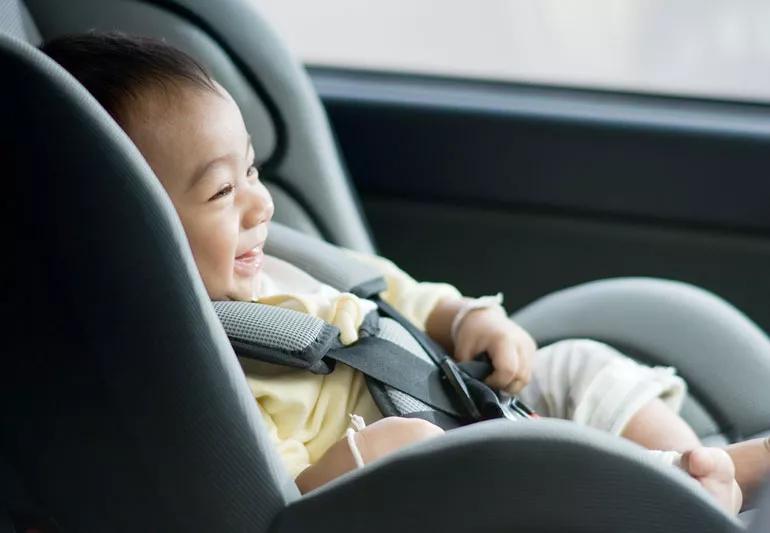A pediatrician debunks myths and shares tips to keep your kids safe

Image content: This image is available to view online.
View image online (https://assets.clevelandclinic.org/transform/41555e81-2041-4f7b-9f13-84e33abd8d94/babyCarSeatSafety-183355794-770x533-1_jpg)
happy baby in car seat
It seems unthinkable, and yet it happens. Every year, children die after being left in the car on hot days — even just for a few minutes.
Advertisement
Cleveland Clinic is a non-profit academic medical center. Advertising on our site helps support our mission. We do not endorse non-Cleveland Clinic products or services. Policy
There are some misconceptions about this issue, as explained by pediatrician Paula Sabella, MD. She separates five common myths from the facts and offers simple, powerful tips to protect children.
Fact: Researchers estimate that half of hot-car incidents involve a loving parent or caregiver who forgets a sleeping child in the backseat (sometimes referred to as Forgotten Baby Syndrome).
“Even a simple change in the child care drop-off routine could confuse sleep-deprived parents and cause them to leave an infant behind, unaware,” Dr. Sabella says.
Fact: On an 80-degree day, the temperature inside your vehicle can reach a dangerously hot level in as little as 10 minutes.
Fact: An outside temperature of just 60 degrees F can heat your car to well above 100 degrees F.
Fact: A child’s body temperature rises three to five times faster than an adult’s. Their body temperature can rise faster relative to their body surface area.
“Babies bodies’ heat up quicker than adults, and young children don’t have the same ability to produce sweat to cool off,” Dr. Sabella explains.
Fact: According to researchers at the National Highway Traffic Safety Administration, a car’s windows act as a greenhouse, and cracking one does little to keep the car cool.
Advertisement
“A cracked window shouldn’t give anyone a sense of security when there’s a child in the car,” Dr. Sabella says.
“The take-home message here is that there truly is no safe temperature or length of time in which a child should be left in a car alone,” Dr. Sabella says. “Period.”
She offers some commonsense tips to help parents and caregivers form the kind of daily habits that can prevent hot car deaths.
Most hot car deaths are accidental, yet there’s never a good reason to leave a child alone in the car for any length of time. If you see an infant or child in a parked car and no adults are present, it’s important to be a good citizen.
“Don’t hesitate to call 911,” Dr. Sabella reiterates. “It could save a life.”
Advertisement

Delivered every Tuesday!
Sign up for our Health Essentials emails for expert guidance on nutrition, fitness, sleep, skin care and more.
Learn more about our editorial process.
Advertisement
Babies born preterm may need special precautions to ride safely in a car
Keep your child rear-facing as long and possible, and ensure proper fit and installation
How to know when your child’s ready to face front, switch to a booster seat and more
Bleeding is a risk and warrants taking care, but the reward of this lifesaving medication is great
Severe and debilitating headaches can affect the quality of your child’s life
Type 2 diabetes isn’t inevitable with these dietary changes
Applying a hot or cold compress can help with pain
Pump up your iron intake with foods like tuna, tofu and turkey